- Home
- Sharyn McCrumb
The Unquiet Grave
The Unquiet Grave Read online
Thank you for downloading this Simon & Schuster ebook.
* * *
Get a FREE ebook when you join our mailing list. Plus, get updates on new releases, deals, recommended reads, and more from Simon & Schuster. Click below to sign up and see terms and conditions.
CLICK HERE TO SIGN UP
Already a subscriber? Provide your email again so we can register this ebook and send you more of what you like to read. You will continue to receive exclusive offers in your inbox.
For Sandra Menders
one
LAKIN, WEST VIRGINIA
1930
THE PLACE WAS AS QUIET as it ever got in the hours around midnight, with only occasional screams or sobs from the cells down the corridor to disturb his contemplation. Somewhere, perhaps on another floor of the building, someone was singing.
He was standing at the window, as he always did at that time of night, hands resting on the bars, his face pressed against the wire-reinforced glass, as if the cool night air could waft him away. Perhaps no one cared if he stood at the window after lights-out; there were a hundred patients and perhaps a dozen staff members who were busy enough without having to worry about a quiet man having a sleepless night. Anyhow, even if they did care, chances were that they wouldn’t see him. His dark face would not glow in the moonlight and give him away.
He strained his eyes, searching the darkness beyond the treetops, hoping that the clouds would part enough to let him see the shapes of the dark cliffs across the river. That was Ohio, over there. In his parents’ day, back when this place was still part of Virginia, that side of the river would have meant freedom, but that had changed now. Now freedom—or the lack of it—was the same everywhere for ordinary people. And for madmen and criminals, there was no freedom at all. Since he had spent most of his life subscribing to, and even enforcing, that rule, it seemed churlish to object to it now, just because its strictures now applied to him. Those who are a danger to themselves or others must be restrained.
He could never see the river itself—it was nearly a mile away, beyond the fields on the other side of the road. Except in the dead of winter, the trees blocked the view, and then the steep embankment obscured the water. At least he knew it was there, though: the broad, dark waters of the Ohio rolling on to the Mississippi and on to its freedom in the Gulf. He would like to have seen that confluence, followed it even, all the way to journey’s end. The puny little rivers where he came from, in the eastern part of West Virginia, weren’t a patch on this one; why, except in the spring floods, you could wade across most of them. What was the point of being here—so close—and not getting to see the river? What was the point of being here anyhow? It wasn’t as if they could help him. If he had been delusional, perhaps they could have led him back to reason, but he always thought that his problem was seeing the world too clearly.
From somewhere down the hall a long scream pierced the stillness. One of the old men was either hallucinating horrors or remembering real parts of his past, perhaps as far back as slavery—it was hard to tell which was worse, because those who imagined them believed with equal fervor. At least he was spared all of that. He spent a long time at night with his face pressed close to the window, and when he finally fell into bed, he did not dream.
He wished he could either become entirely sane or else very much more mad. A delusion that transported you right away from unpleasant realities would be more blessing than affliction, it seemed to him. Let him drift away on a current of madness into a dreamworld where he was young again, where his gentle Eliza or her successor, clever Alice, was still alive and well—or, better yet, some kingdom out of a fairy story, in which the world was entirely different from anything he’d ever known. Let there be talking horses, and penny candy stick trees, and golden rivers of bourbon. He sighed. None of those fantasies particularly appealed to him any more than the real world did just now. He had spent his life in the profession of law—not a discipline that encouraged its practitioners to be fanciful. He had always considered an excess of dignity and a dearth of imagination to be positive qualities in his character, but unless madness conferred its own artistic inspiration, his temperament made him ill-equipped to enjoy the benefits of delusion, and his lifelong habit of reserve would have held him back anyway. He was forever an observer, and one day he had decided that he had seen enough and wanted to leave. Yet here he was.
His own particular form of insanity was to see the world exactly as it was, and to despair in silence.
As he grew older, the truth, unvarnished by hope or illusion, made him desperate to escape life itself. But suicide was considered madness, rather than a shrewd appraisal of one’s options, and so here he was in this barred asylum, as desolate and bereft of choices as Shakespeare’s Ophelia, but prevented, both literally and metaphorically, from reaching the river.
Odd that, while he could never see the river, there were other things that he did see sometimes in the night. A thing with glowing red eyes and leathery wings . . . Other patients had spoken of it, too, but while they had wild imaginations, unmoored from logic, he did not. Precisely because he saw things exactly as they were, he knew that whatever-it-was was real.
Best not to speak of that, though. He couldn’t be bothered to try to convince the long-suffering staff of the asylum that this one particular delusion was not one at all. It didn’t matter really. The thing was doing no harm, except perhaps to make people who reported it seem madder than they actually were.
It hadn’t taken him long to figure out that these people could not help him, even if they wanted to, and that the best course would be to learn the rules of the game that would set him free as quickly as possible. He had been learning the rules and playing the game all his life, so this was just one more battle of wits, not much different from the others. There were no white people here, but the game was pretty much the same: those in charge versus those who had no power at all.
“You’re up late tonight, James.”
He stiffened, nettled by the condescending tone, the use of his Christian name. He turned toward the doorway, where a shadow was silhouetted by the light in the corridor. “With all due respect, sir, despite my present circumstances, I am not your inferior, and from the sound of your voice, I do not think myself junior to you in age, either. I am certainly not a child. Please address me as Mr. Gardner.”
There was a brief silence, while the shadow seemed to consider the matter. “Need we be so formal? After all, you are a patient here. And I am an attending physician.”
“If we were on my home ground—in a courtroom—instead of in a hospital, would you willingly allow me to call you by your given name while you addressed me as ‘Mister’?”
“Perhaps not. We doctors like to stand on ceremony.”
“Have we met? Your voice is unfamiliar to me.”
“In passing. I have not treated you, but my room is just down the hall here, and I thought since we were neighbors I’d pay a call on you. I couldn’t sleep, either.”
The prisoner considered it. “So you are our hall monitor. I remember you. You may come in if you like.”
“Thank you. Another time, perhaps. I didn’t bring the keys.”
“How odd that they house you doctors here among your patients. No one quarters lawyers next door to the criminals in the jail.”
The visitor chuckled. “I suppose not, but there weren’t many alternatives in this case. Point Pleasant is six miles down the road, and its population is mostly white, so it was deemed both inconvenient and awkward for us to try to live there. We’re understaffed here, too, so it’s helpful to have us in residence in case we’re needed beyond our regular working hours. I don’t mind. It saves me rent money.”
“Your voi
ce makes me think you’re mighty young, Doctor, and that last remark of yours clinched it. What’s your name again?”
There was a slight pause before the reply. “My name is Boozer. Dr. Boozer, that is.”
He laughed. “Boozer? That name must have been a cross to bear at times.”
“I got used to it. By the time I was ten, I’d heard every schoolyard jest that can be made about it, but after people become acquainted with me they stop noticing. And my parents tried to temper its effects by giving me an ordinary first name—James. Like yours.”
“Boozer.” Gardner considered it. “No doubt people think the name means you are descended from drunkards. I don’t suppose it does, though.”
“Well, not in our case. I can’t speak for the original owners. I’m sure our surname was a leftover from the white folks back where my parents came from, because its origin is Scottish, and we most definitely are not. I looked it up one time in the library when I was in Pennsylvania. It’s a variation of Bousay, but God only knows what that means.”
“You must spend a lot of time explaining that.”
“It’s best to get it out of the way quickly, I’ve found. Anyhow, the staff says that you are an educated fellow yourself, Mr. Gardner, and your conversation certainly bears that out. When you called the courtroom your home ground, did you mean that you were a lawyer?”
“I am a lawyer, young man. I still am one. And when I get shed of this place, I shall resume my practice immediately back in Mercer County, so don’t go thinking of me as a permanent fixture around here.”
“I wish you well, Ja— Mr. Gardner. And we’ll do our best to send you on your way. God knows we need the space. They called lights-out a long while back, yet here you are, gazing out the window. Are you having trouble sleeping?”
“I savor the silence in the dead of night. If I had to exist only in the cacophony of daytime here, I would indeed go mad.”
“I know. It helps to think of them as injured. They don’t have any visible wounds to prove that, but I’m certain they suffer just as much.”
“Canst thou not minister to a mind diseased?” The mockery in Gardner’s voice was unmistakable.
“We do what we can. Some people are easier to reach than others. I’d like to help you, if you’d ever like to talk about things.”
“Perhaps one day, young man. But you haven’t lived long enough yet to have had much experience of the world. I warn you that the things I say, which to you will seem the sheerest lunacy, will be the plain unvarnished truth.”
“Are you standing at that window watching for the red-eyed demon some of the patients claim is out there?”
Gardner laughed. “Perhaps I am, Doctor. And perhaps I cannot tell a hawk from a handsaw. But I’ll tell you one thing I did not ever see—the ghost of Zona Heaster Shue.”
“Who is that?”
“A white lady—just a country girl who died a long time back. I never met her, but she lost a case for me in court. She testified for the prosecution.”
“Before she died, you mean?”
Mr. Gardner laughed. “No, after!”
two
GREENBRIER COUNTY, WEST VIRGINIA
1896
I WASN’T THERE.
I reckon that’s when the trouble started, though, that September day on the farm in the Richlands, where Zona was staying for a while, away from home and enjoying the last of late summer with her cousins and their friends. We hoped they’d keep her out of mischief, but we knew from bitter experience that Zona did as she pleased, and propriety be damned. Well, she was a grown girl, so I had little choice but to let her go. I used to try to make her act ladylike, but she was such a lovely, winsome little thing that her father could never bring himself to rein her in—he will have to live with that.
At the time I was halfway across the county on the farm in Meadow Bluff, tending to the cooking and the washing, and minding the younger children, same as always. Zona was well past twenty, and sometimes I could feel every minute of my forty-six years, so I could have used her help around the place, but Zona wasn’t one to be stuck with her folks on a mountain farm in the back of beyond. She’d have hitched her wagon to a skunk, much less a star, just to get away from home and out into the world. She’d already tried once, but that ended in tears.
I heard an account of that fateful day, when it was too late to matter, from Sarah, the oldest of the Richlands cousins, who made a tale of it as country folk do for want of any other entertainment. I don’t blame her for what came after. Seems like it was destined to happen, and no one could have stopped it.
“The lady visitor from Lewisburg came hobbling up the lane to the farm that afternoon,” she told me. “And she was a lady, too. Everything from the cut of her clothes to her air of calm superiority proclaimed that. It came so natural to her that you couldn’t even take offense. She was leading a lame chestnut mare, and as soon as she spied me, she asked for a cup of water—or milk, if we could spare it.
“She was smudged with road dust, and damp with sweat, but in spite of that we could tell from her fancy broadcloth riding clothes and those high-polished black boots of hers that she was as much of a thoroughbred as that saddle horse beside her. She looked to be one of the society ladies staying over at the grand hotel folks call the Old White, but that was miles away from us, over in White Sulphur Springs. No society lady would ever have ridden that far alone on an afternoon excursion. Zona was somewhere about the house, but the visitor’s arrival had put her right out of my mind, so I didn’t call for her. Instead, I hurried down the steps to meet the lady, mainly to be hospitable, but also because I didn’t want her in our little parlor with its faded horsehair sofa and the worn rug I’d braided myself from rags. I wasn’t ashamed of it, exactly; it was clean and all we could afford, but I was afraid that if I let her in, I’d see it ever after through her eyes—shabby and cheap.
“It turned out she had been visiting folks she knew over in Lewisburg, and she rode out this way past the ladies’ academy, down the Midland Trail for a change of scenery. Nobody coming straight from the hotel would happen upon our place unless they’d been to Lewisburg first. We live nearly twenty miles away—too far from there even to sell their cooks some vegetables from our garden for their dining room, or a side of beef or some chickens, the way farm folk who live closer to the hotel do. I wish we did live closer; we could do with the extra money.
“I’ll bet those who sell their vegetables and hens to the hotel wouldn’t recognize them if they happened to dine there—not after all the tarting up that’s done to them in that kitchen of theirs, sauces and spices and I don’t know what all. Nobody around here ever does go there, but we hear tales now and again from folks with kin working there. Peculiar food and outlandish clothes; if I had their money, I’d have better things to spend it on.
“I just mostly fry up or boil what we eat, but I’ve had no complaints about my cooking. We’re plain folks, and plain food suits us just fine. I wouldn’t be asking this lady guest to sit supper with us, either, that’s for sure.
“Said she had borrowed a horse from the people she was visiting, and she had ridden out along the pike for an afternoon excursion, but her horse stumbled and threw a shoe on the stones. She wasn’t thrown, but she’d had to dismount, of course. Leading the mare, she’d hobbled into the first lane she came to—you recall that you can see our place from the main road; it’s not far. I bade her come on up, and she sank down on our front porch, worn out by the ordeal of her quarter-mile walk. I tried not to smile as she held forth about her afternoon’s tribulations. Why, us farmers’ wives walk farther than that just seeing to the hens and the garden, but it would have been rude to tell her so.
“I sent our youngest across the pike a ways after the blacksmith, and then I went inside to get the lady some fresh milk out of the jug, marveling that anyone could so blithely put complete strangers to any trouble on their behalf, for it’s not a thing that would come easily to most folks around here
.”
At that point in her recitation, I nodded at my cousin, knowing exactly how she felt. Around here we don’t hold with being in debt, and accepting a favor is simply a different way of owing someone. Better to grant a favor than to have to ask for one, though, so I’m sure she thanked Providence that the situation was not the other way around.
“Our youngest is twelve, you know, and he chafes at being pent up here on the farm, as he calls it, so he was glad enough to go on this errand, before his daddy got back from the fields with more chores for him to do before suppertime.
“We could spare all the milk our thirsty visitor cared to drink, for, although folks like us seldom have much ready cash, there is always enough to eat on a farm, and I gave it to the lady willingly enough, just for the pleasure of admiring her fine green riding habit and the black felt hat with a green feather in the band. We don’t get to see colorful strangers all that often here, and since the fancy hotel is so far away, she was a rare sight indeed. Mostly I see other farm wives in homemade dresses in church on a Sunday, and I know their wardrobes by heart.
“The lady’s broadcloth coat and skirt did not count as finery to her, of course. They were only clothes for an afternoon ride, but they probably cost more than everything we had in the house—certainly more than all the clothes we owned, for I made most of those myself, and I’ve never had a store-bought dress in my life.”
Neither have I, I thought when Cousin Sarah said that. Well, I wouldn’t have any use for such finery, anyhow, living out here near Sewell Mountain, but back when I was of courting age, I’d have liked the chance to put on such clothes as the ones my cousin described. Maybe a satin gown would have changed my life.
But I never danced at the Old White, and no prince ever came riding out of a storybook to take me away. I never was the beauty to draw beaux from miles around, so when I got far enough past twelve to think on leaving home to set up housekeeping, I married up with Jacob Heaster, whose folks lived near us over on the other side of Sewell Mountain. He was two years older than me, but I’d known him from church and school all my life, and though there weren’t too awful many girls to choose from in our community, I reckon he could’a done worse, and maybe I could’a done better, but we soldiered on and made a family, which is all there is, when you come right down to it. The rest is just trimmings.

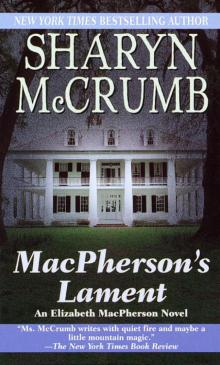 Elizabeth MacPherson 07 - MacPherson’s Lament
Elizabeth MacPherson 07 - MacPherson’s Lament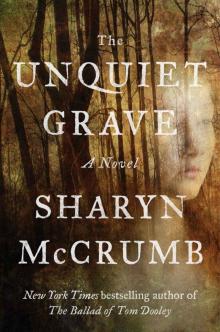 The Unquiet Grave: A Novel
The Unquiet Grave: A Novel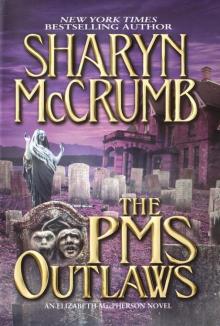 The PMS Outlaws: An Elizabeth MacPherson Novel
The PMS Outlaws: An Elizabeth MacPherson Novel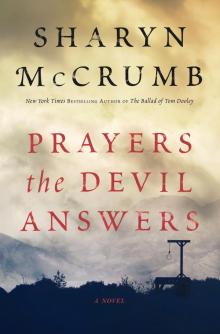 Prayers the Devil Answers
Prayers the Devil Answers Paying the Piper
Paying the Piper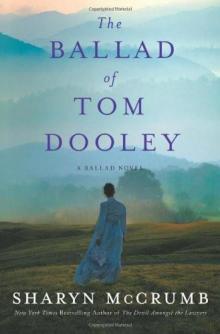 The Ballad of Tom Dooley: A Ballad Novel
The Ballad of Tom Dooley: A Ballad Novel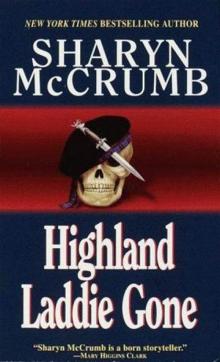 Highland Laddie Gone
Highland Laddie Gone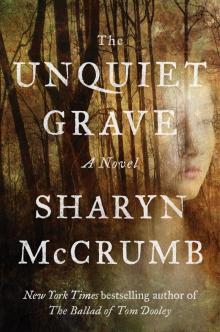 The Unquiet Grave
The Unquiet Grave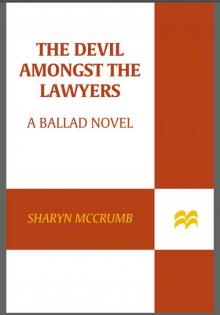 The Devil Amongst the Lawyers
The Devil Amongst the Lawyers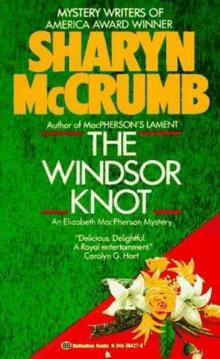 The Windsor Knot
The Windsor Knot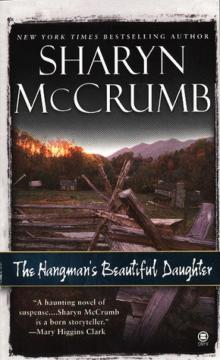 The Hangman's Beautiful Daughter
The Hangman's Beautiful Daughter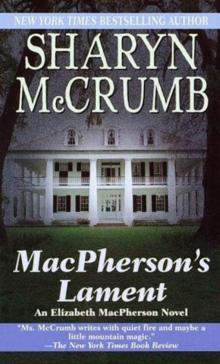 MacPherson's Lament
MacPherson's Lament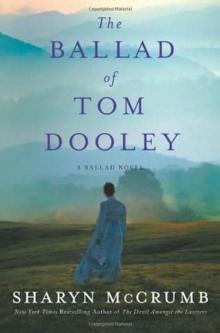 The Ballad of Tom Dooley
The Ballad of Tom Dooley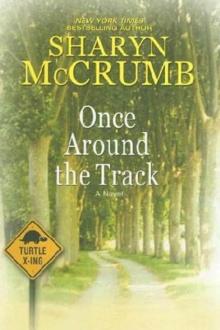 Once Around the Track
Once Around the Track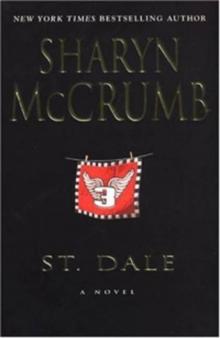 St. Dale
St. Dale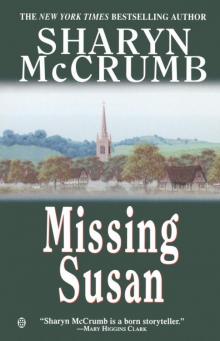 Elizabeth MacPherson 06 - Missing Susan
Elizabeth MacPherson 06 - Missing Susan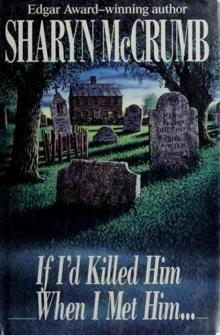 If I'd Killed Him When I Met Him…
If I'd Killed Him When I Met Him…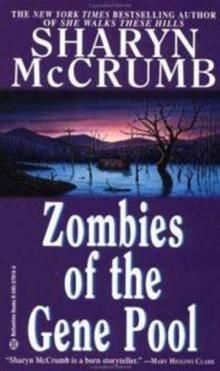 Zombies of the Gene Pool
Zombies of the Gene Pool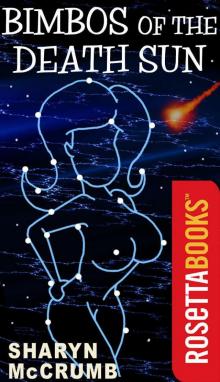 Bimbos of the Death Sun
Bimbos of the Death Sun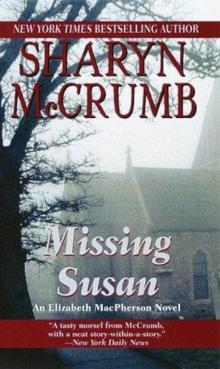 Missing Susan
Missing Susan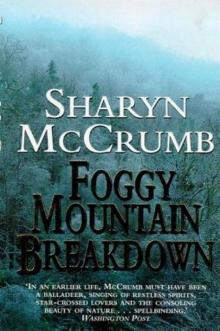 Foggy Mountain Breakdown and Other Stories
Foggy Mountain Breakdown and Other Stories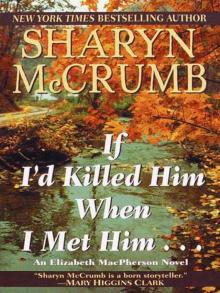 If I'd Killed Him When I Met Him
If I'd Killed Him When I Met Him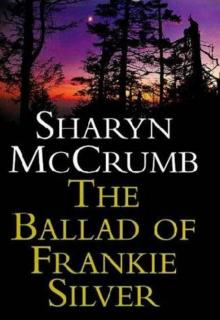 The Ballad of Frankie Silver
The Ballad of Frankie Silver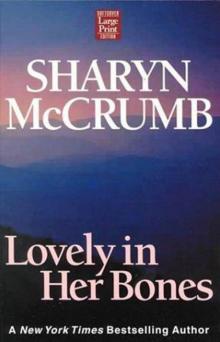 Lovely In Her Bones
Lovely In Her Bones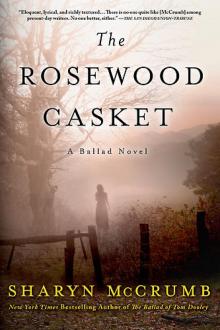 The Rosewood Casket
The Rosewood Casket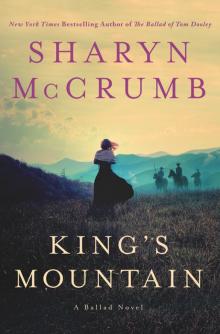 King's Mountain
King's Mountain